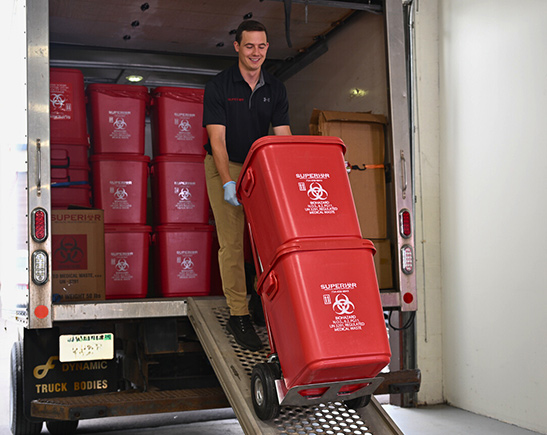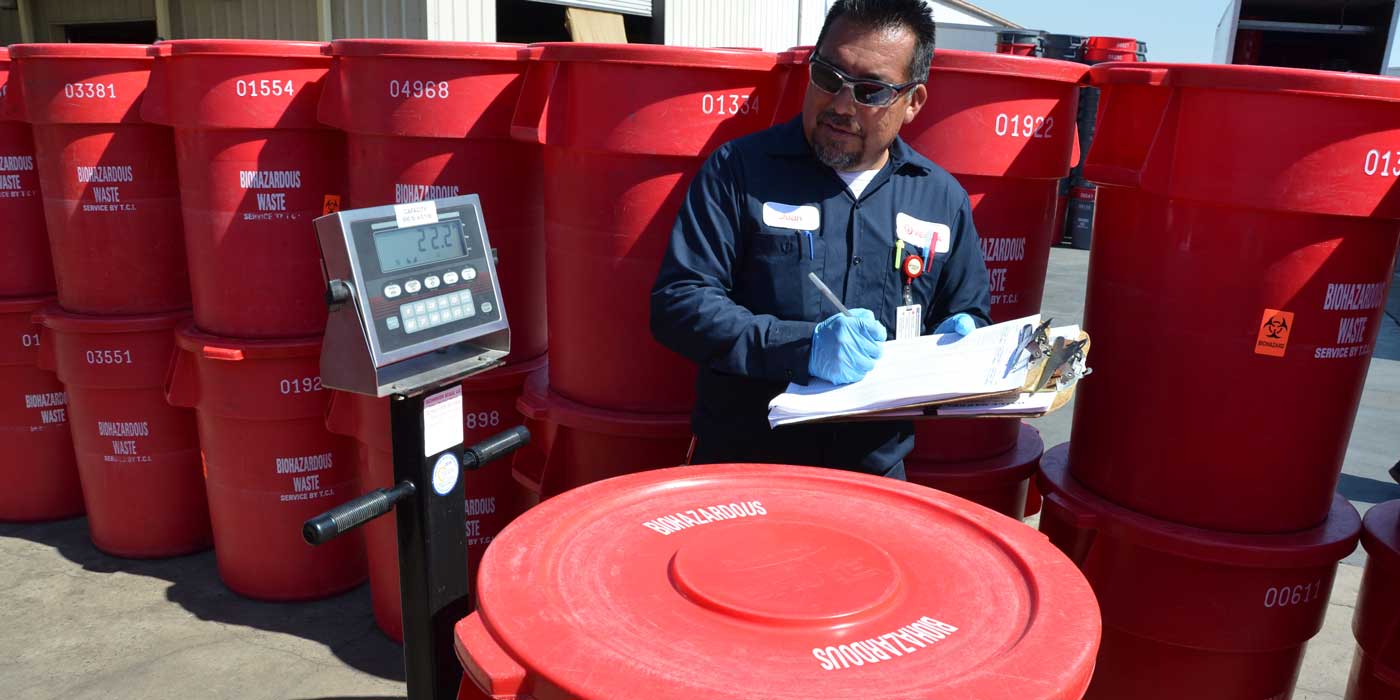Know-how Unleashed: Understanding the Art of Medical Waste Removal for Health Facilities
Know-how Unleashed: Understanding the Art of Medical Waste Removal for Health Facilities
Blog Article
Checking Out Different Garbage Disposal Options for a Cleaner Environment
In the search of a cleaner setting, the monitoring of waste disposal has actually become an essential centerpiece for sustainable growth. With a multitude of garbage disposal options available, ranging from conventional garbage dump techniques to cutting-edge waste-to-energy modern technologies, the choice of just how we manage our waste has far-ranging implications for our earth's well-being. By taking a look at the numerous techniques and techniques utilized in reusing, composting, incineration, garbage dump administration, and waste-to-energy procedures, a deeper understanding of their effects and efficiency can be obtained. The quest for optimal waste disposal methods that prioritize ecological conservation while meeting the needs of a growing population stays a pressing issue in today's world.
Recycling Techniques
Carrying out reliable reusing methods is vital in lessening waste and advertising sustainability in our environment. Reusing includes the procedure of converting waste products into recyclable items to stop unneeded disposal.
An additional crucial recycling method is composting, which entails disintegrating natural waste like food scraps and yard trimmings into nutrient-rich soil. By including these numerous recycling techniques right into our waste monitoring practices, we can considerably lower our ecological footprint and move in the direction of a more sustainable future.

Composting Strategies
Reliable waste administration techniques, such as recycling approaches, lead the way for a cleaner atmosphere, and currently, shifting the focus to 'Composting Techniques', we explore sustainable ways to decay natural waste for ecological advantage. medical waste disposal.
Composting is an all-natural process that changes natural waste, like food scraps and lawn trimmings, into a nutrient-rich soil amendment. The trick to effective composting depends on producing the ideal balance of eco-friendly materials, such as fruit and veggie scraps, and brown products, like dried out fallen leaves and twigs. These materials decay with the aid of bacteria, damaging down the waste right into valuable garden compost.
Conventional yard composting entails layering natural materials in a bin or heap and regularly turning the combination to aerate it. By utilizing composting strategies, we can reduce the amount of waste sent out to landfills while creating a valuable item for improving soil and sustaining plant growth.
Incineration Cons and pros
Incineration, as a waste disposal approach, offers both benefits and disadvantages that merit cautious consideration in the realm of lasting waste management methods. On the positive side, incineration can significantly lower the quantity of waste, reducing the demand for garbage dump room and potentially decreasing greenhouse gas exhausts. Incineration likewise enables the healing of energy via the generation of power or warmth, adding to source recuperation. The process can be utilized to destroy unsafe compounds, offering a secure technique for dealing with particular kinds of waste that may present risks to public wellness and the environment if left without treatment.
However, there are remarkable downsides to incineration. One major issue is the possible launch of damaging contaminants right into the air, such as dioxins, hefty metals, and particle issue, which can have negative results on human health and wellness and the environment. In addition, the high preliminary financial investment and operational expenses of incineration facilities posture financial challenges, making it a much less economical option contrasted to various other waste management approaches. Careful tracking and guideline are essential to reduce these adverse influences and optimize the benefits of incineration as part of an extensive waste administration approach.
Garbage Dump Monitoring Methods
Land fills play a critical function in waste management and environmental preservation by providing a containment system for the disposal of solid waste materials. Effective garbage dump monitoring approaches are essential to minimize ecological influences and make sure the long-term sustainability of these waste disposal sites. One vital method is appropriate waste compaction to optimize the use of available area within the garbage dump (click here). By condensing the waste, the volume is decreased, permitting more waste to be suited in time.
Moreover, the execution of daily cover methods is vital in reducing odors, stopping clutter, and lowering the destination of pests. Covering the disposed waste at the end of daily helps to have odors and stop possible ecological contamination. Furthermore, the tracking of land fill gas exhausts and leachate degrees is important in ensuring that ecological standards are satisfied which any type of prospective threats to surrounding ecosystems are minimized.

Waste-to-Energy Technologies
Among the cutting-edge techniques to squander administration entails harnessing Waste-to-Energy innovations to transform strong waste right into functional power resources. Waste-to-Energy (WtE) modern technologies incorporate a variety of processes that aim to extract power from waste materials through thermal, chemical, or organic ways. This conversion process not only decreases the quantity of waste that winds up in landfills yet likewise creates useful power sources such as electrical power, warmth, or biofuels.
Incineration entails shedding waste at high temperature levels to generate warm and electrical power. Gasification transforms waste right into a syngas, which can be utilized for power generation or chemical manufacturing.
Implementing Waste-to-Energy technologies can help reduce ecological issues connected with traditional garbage disposal methods while concurrently providing an eco-friendly power source. Mindful factor to consider needs to be offered to discharges control and making certain the sustainability of feedstock materials for these innovations to be truly beneficial for a cleaner setting.

Verdict
In conclusion, checking out various waste disposal options such as recycling, composting, incineration, garbage dump administration, and waste-to-energy modern technologies is crucial for advertising a cleaner atmosphere - click here. Each approach has its very own benefits and difficulties, however by using a combination of these approaches, we can work in the direction of reducing the amount of waste that winds up in land fills and eventually add to a much more sustainable future for generations to come
With a wide range of waste disposal alternatives readily available, varying from traditional garbage dump approaches to innovative waste-to-energy innovations, the selection of exactly how we manage our waste has significant effects for our planet's wellness. medical waste removal.Incineration, as a waste disposal method, presents both benefits and drawbacks that merit mindful factor to consider in the realm of sustainable waste administration methods.Land fills play a critical function in waste administration and ecological preservation by offering a containment system for the disposal of strong waste materials. By compacting the waste, the volume is minimized, permitting for more waste to be suited over time
One of the cutting-edge approaches to squander administration involves taking advantage of Waste-to-Energy modern technologies to convert solid waste into functional power resources.
Report this page